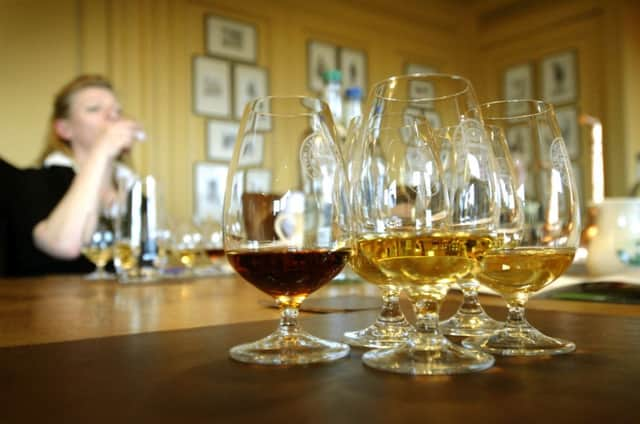No vote offers taste of good things ahead


SCOTLAND’S food and drink industry will have enjoyed a brief boost in pub revenues in the latter part of last week, as voters took advantage of extended licensing hours on Thursday night and celebrated or commiserated the result of the referendum.
It was therefore with much interest that I read the Bank of Scotland’s third annual market survey on the industry, released at the start of Scottish Food and Drink Fortnight (6–21 September), knowing Scotland’s constitutional future would be decided by the time the fortnight came to a close.
Advertisement
Hide AdAdvertisement
Hide AdThe report spoke of considerable optimism and of producers gearing up for further growth, which could result in the creation of around 10,000 new jobs across the industry over the next five years. This would have been encouraging reading for Scotland Food & Drink, which in October raised the industry sales target for 2017 from £12.5 billion to £16.5bn.
A number of key factors for achieving growth were cited, including new product development, entering new markets and investment in existing products. Yet to what extent might the outcome of the vote affect these plans, or how might they have been affected had the result gone the other way?
The No verdict should see the delivery of greater devolved power to Scotland as outlined in “the Vow” from Westminster. Yet the Scottish Parliament already has jurisdiction over matters pertaining to food and drink, including agriculture, forestry and fisheries, the environment and health and social services. There should therefore be no consequential change to existing plans in pursuance of the health agenda, such as minimum pricing and the establishment of the new government agency, Food Standards Scotland.
The Scotch Whisky Association had spoken about risks to the industry posed by independence, so it was not surprising to hear chief executive David Frost speak of the stability brought about by the No result with a sigh of relief. This was echoed by the Scottish Grocers’ Federation, while Diageo said the future of the whisky industry will remain bright, provided that there is no further regulation or taxation imposed upon it.
In response to the Prime Minister’s enquiry during the referendum campaign into the likelihood of increased food prices, Asda chief executive Andy Clarke implied independence would result in price rises. Sainsbury’s followed suit, whereas Tesco and Aldi were less pessimistic. However, the example of Ireland would suggest that had higher prices come into play in the event of a Yes vote, it could have stifled the industry’s anticipated ambitions within new product development (NPD) and, in turn, have potentially stifled growth.
Neither a Yes nor a No vote could have done anything to tackle some of the industry’s key challenges. Government policy cannot precipitate the end of climate change (at least in the short term) and the vagaries of the weather, which cause volatility in raw material costs and affect food security and sustainability.
Given that an independent Scotland’s currency would have been the subject of a lengthy negotiation and that major financial institutions had warned there were changes afoot had Thursday’s vote gone the other way, the No result will allow those businesses in the food and drink sector seeking to raise funding for NPD and to invest in existing products, to press on with their plans.
Businesses looking to enter new markets will also be unhindered by any concerns over Scotland’s suitability as a business partner and its future within the EU (until any UK-wide EU referendum at least) and will remain free to draft agreements without contingency clauses on currency. Conversely, the dip in the strength of the pound, which was predicted in the event of a Yes, would have given a boost to the profit margins of exporters.
Advertisement
Hide AdAdvertisement
Hide AdThe referendum has certainly put Scotland on the world stage, so irrespective of the result, this can only have served to fuel the growing appetite for quality Scottish produce, cited in the Bank of Scotland report as playing a vital role in international expansion. Indeed both sides of the debate appear to have found a renewed sense of their own “Scottish-ness”, whether coupled with “Britishness” or not. Therein lies an opportunity to increase domestic retail sales of Scottish food and drink brands.
So in this historic time, there is much reason for Scotland’s food and drink sector to remain optimistic.
• Rona Dennison is director (food and drink), with Burness Paull www.burnesspaull.com
SEE ALSO